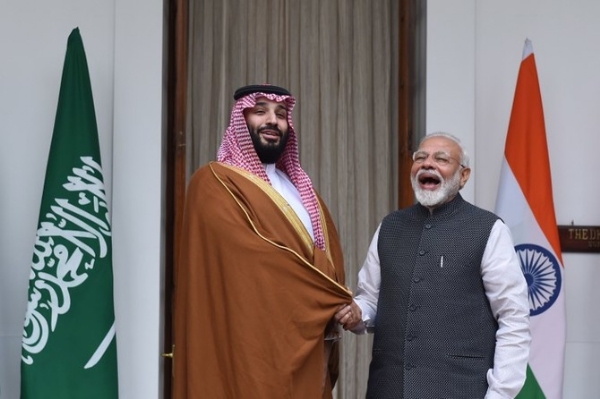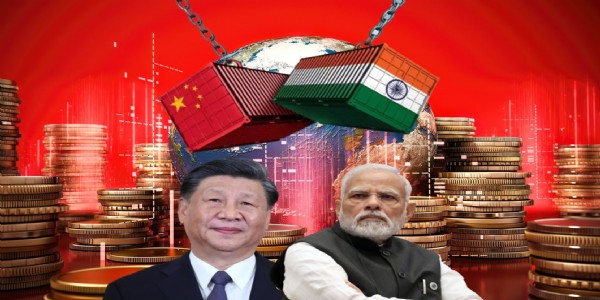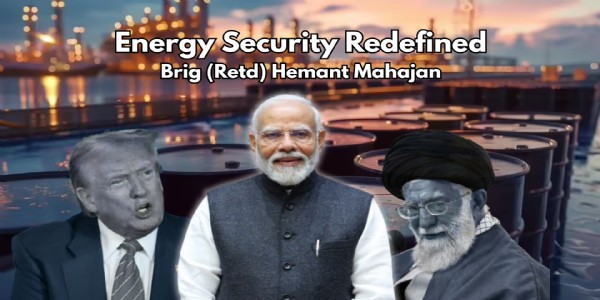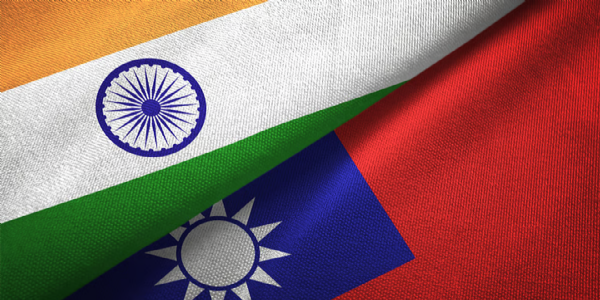India Emerging as a 'Major Player' in the Middle East: US Magzine
India and Middle Eastern countries were already intertwined in various ways, of course.
Total Views | 80
New Delhi, Jul 3: India is emerging as a “major power” in the Middle East, and it is time to take New Delhi’s projection of power in the region seriously, read an article in Foreign Policy, a US-based magazine on global affairs. The author, Steven A Cook, cited one of his previous visits to India after which he said he was skeptical about a future Indian role in the Middle East.

“India and Middle Eastern countries were already intertwined in various ways, of course. There were budding military and technology ties between India and Israel. One could not travel in the Persian Gulf region without noticing that guest workers from the Indian state of Kerala provided the labor that made many of the Gulf countries run. India also imported a lot of oil from the Middle East. Yet after my conversations with officials, diplomats, generals, and analysts, it struck me that Indians did not want to play a larger role in the Middle East,” he wrote in the piece.
US magazine Foreign Policy article highlights India's emergence as 'major player' in Middle Easthttps://t.co/BwF8pkuzTt via NaMo App pic.twitter.com/NYLykuIhiv
— General Vijay Kumar Singh (@Gen_VKSingh) July 2, 2023
However, he said he believed that things have changed now and India was emerging as a major player in the Middle East. “In the 10 years since my trip, however, things have changed. While US officials and analysts are obsessed with every diplomatic move Beijing makes and eye Chinese investment in the Middle East with suspicion, Washington is overlooking one of the most interesting geopolitical developments in the region in years: the emergence of India as a major player in the Middle East,” Cook stated. He added that India-Israel ties are, perhaps, the most well-developed when it comes to New Delhi’s relations in the region. Although India recognized Israel in 1950, the two countries did not establish normal diplomatic ties until 1992. Since then, especially in recent years, they have deepened their ties. In 2017, Prime Minister Narendra Modi was the first Indian leader to visit Israel, which was followed by his Israeli counterpart traveling to India the following year. “Beyond the pomp of these visits, India-Israel ties have rapidly developed in a variety of fields, notably high-tech and defence,” he said. Citing Stockholm International Peace Research Institute, Cook stated that Israel was among India’s top three arms suppliers in 2021, and recent Indian news reports indicate that the two countries are exploring the coproduction of weapons systems. Also in the past, India’s business community shied away from investing in Israel, given the country’s small market and controversial politics (too many in India), but that may be changing, he added. “In 2022, the Adani Group and an Israeli partner won a tender for Haifa Port for 1.2 billion USD. There are also ongoing negotiations for an India-Israel Free Trade Agreement. Of course, the India-Israel relationship is complicated. India remains steadfast in its support for the Palestinians; has friendly ties with Iran, from which New Delhi has purchased significant amounts of oil; and Indian elites tend to see Israel through the prism of their country’s own colonial experience,” he added.
Cook further stated that the Gulf, the United Arab Emirates, and Saudi Arabia were aggressively seeking ways to expand relations with India, which is a significant shift because both countries, but particularly the latter, have long aligned with Pakistan. “The pivot to India stems in part from a common interest in containing Islamist extremism, but much of the pull is economic. The Emiratis and Saudis see opportunities in a country of 1.4 billion people that is less than a four-hour flight away. So far, the results are positive. In the first 11 months of the UAE-India Comprehensive Economic Partnership Agreement, which entered into force in May 2022, non-oil trade between the two countries reached 45 billion USD, which was an almost 7 percent increase above the previous year,” Cook stated in his piece. The ties between India and UAE propelled through I2U2–a grouping of Israel, India, the UAE, and the United States–which seeks to leverage the combined technological know-how and private capital to address alternative energy, agriculture, trade, infrastructure development, and more, he noted. Saudi Arabia, which is India’s second-largest supplier of oil and gas, also wants to augment the energy relationship further by adding renewables into the mix. Citing PM Modi’s recent state visit to Egypt, the author called it an episode in the ongoing Egyptian-Indian love fest, which came about six months after Egyptian President Abdel Fattah al-Sisi was the guest of honor at India’s 74th Republic Day celebration–his third visit to New Delhi since assuming power. The author further stated that if the US Middle Eastern partners are looking for an alternative to Washington, it is better if New Delhi is among their choices. “The United States may no longer be the undisputed big dog in the region, but as long as India expands its presence in the Middle East, neither Russia nor China can assume that role,” he added in the piece.
Bharati Web







